YC Interviews
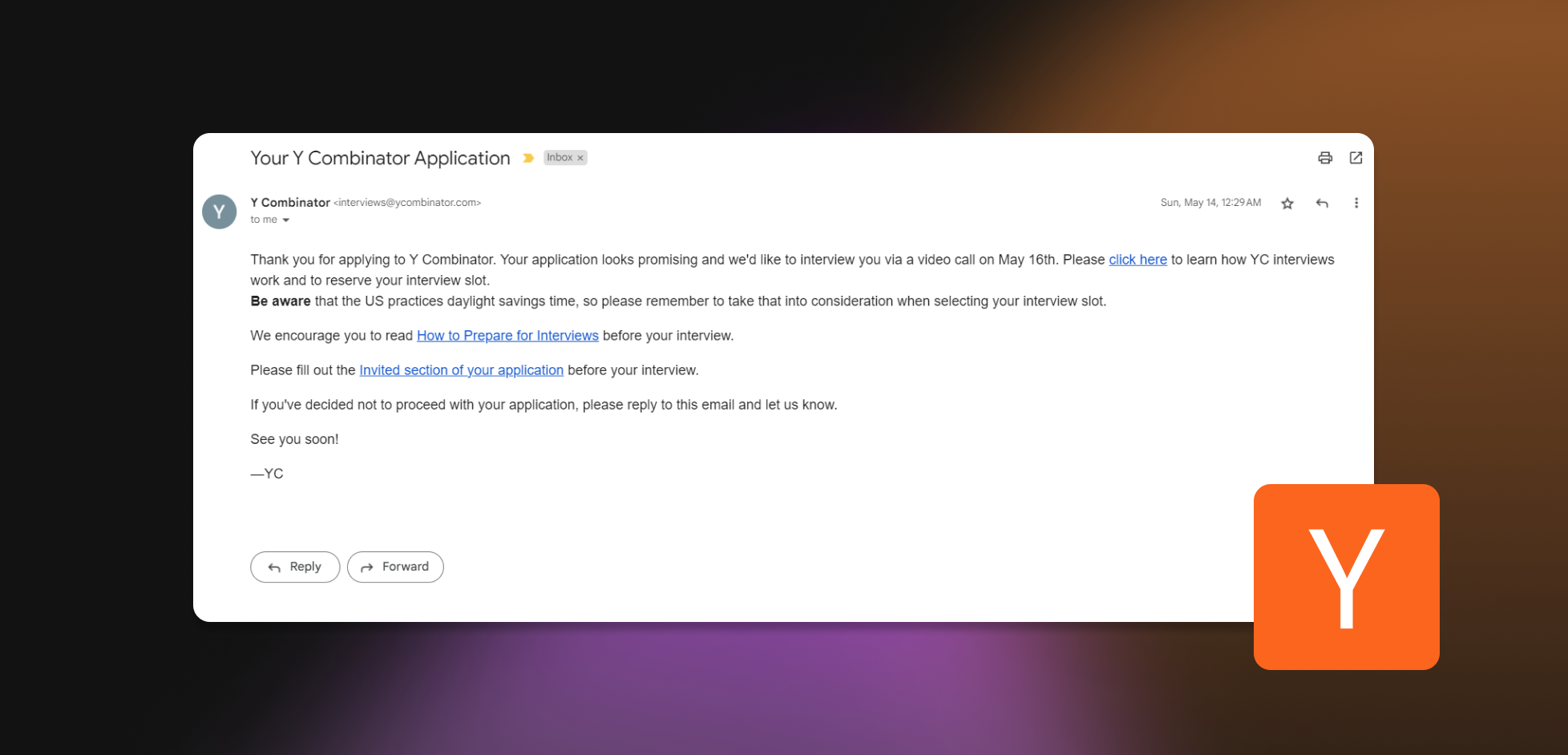
We've applied to YC four times, and we've gotten to the interview round twice.
I'm not sure about my cofounder Stephen, but I get really excited about these interviews because you get to meet with and chat with some really big names in the startup space (albeit only for 10 minutes)
Some of the people who interviewed us were:
Gustaf Alstromer - Prev. Product Lead at Airbnb
Brad Flora - Cofounder, Perfect Audience
Harj Taggar - Cofounder, Triplebyte
Richard Aberman - Cofounder, WePay
Stephanie Simon - Head of Admissions, YC
Its was like getting to meet your favourite celebrities in person. The same people from the YC videos talking about million dollar deals and all the startups they've advised, coming online to a zoom call with you - Walking through your idea, giving you advice (and sometimes investments) - naturally it's like a dream come true.
Our YC Application Statistics
| Batch | Idea | Description | Result | Interview Feedback | Application |
|---|---|---|---|---|---|
| W22 | EzBackend | Scalable & Secure Tech Stack in One Package | Top 10% of Applicants | N/A | View |
| S22 | FireJet | Convert Figma designs to readable code | Invited for Interview | Too many failed ideas in the same space, churn too high | View |
| W23 | FireJet | Convert Figma designs to readable code | No response | N/A | View |
| S23 | FireJet | Convert Figma designs to readable code | Invited for Interview | Very competitive space with no clear differentiation | View |
Our Interview Experience
The YC interviews were really exciting, but unfortunately they were at 3am in our timezone (Singapore) so usually we would have to wake up in the middle of the night to prepare for the interview.
In the Zoom waiting room
For our first interview, it started about 20 mins late.
For our second interview it started exactly on time.
Entering the Zoom call
Each YC interview had three YC partners inside.
Each interview was also led by a single partner, for our first interview it was led by Gustaf and the second interview was led by Harj.
Intial Interview Questions
I can guarantee the following questions, or something similar, will be asked:
- What are you working on?
- How has your progress been so far?
While you would have already provided these details in the YC application, they want to hear it again from you - in order to gauge your ability to communicate your ideas.
Followup Interview Questions
After they asked the initial questions, they asked some followup questions regarding our competition, and what made our product unique.
Style of Interview
During our first interview, if I started talking for too long I would be stopped so that they could move on to the next question. (We were not interrupted during the second interview)
Be prepared to be interrupted, and don't be offended. Ten minutes is a really short time for an interview which necessiates the interruptions.
Followup
Usually we received our response regarding whether we were successful or not 5 or 6 hours after the interview.
W22 - EzBackend (Top 10%)
When Stephen and I graduated from university, the first thing we started work on was EzBackend, which was inspired by our frustrations with the repetitive tasks involved in setting up a backend, like having to manually create the same create, read, update, delete API endpoints for everything, and having to manually write API documentation, etc
Why we were in the top 10% of appplicants
YC has two main tenets - Talking to users and building product. In our application, we demonstrated our ability to build fast (Built MVP in 2 weeks) and our willingness to talk to users (6 interviews in 1 week)
Why we did not get the interview
Personally I still think that this is quite a good idea, it's just really strange for two fresh graduates to be the ones to execute the idea. Great idea, but the team didn't have the credentials to back it up.
S22 - FireJet (Interviewed with YC)
While working on EzBackend we had secured a deal with another startup to build their MVP for 8.7k USD. We did most of the design discussions via Figma, and naturally the question of whether we could convert those designs to code popped up in our minds.
We didn't want to become a services company, and we were having trouble monetizing EzBackend.
Since there were existing Figma to Code tools in the market, we decided that if any of them were usable, we would pay for them and not pursue this idea.
The crazy thing was, NONE of the competitors had working products, so we immediately jumped into the space and hacked out a quick MVP.
Why we got the interview
One of the questions in the YC application was to share a demo url, and in a major flex on our part we shared the reddit link of the demo with 267 upvotes, which probably caught their attention.
YC's motto is build something people want - and I think that was very clear from the upvotes on the reddit post.
We also demonstrated the same speed of execution (Which I believe is really important), having built the MVP in 3 weeks, and gained 167 downloads in the first week,
Why we got rejected after the interview
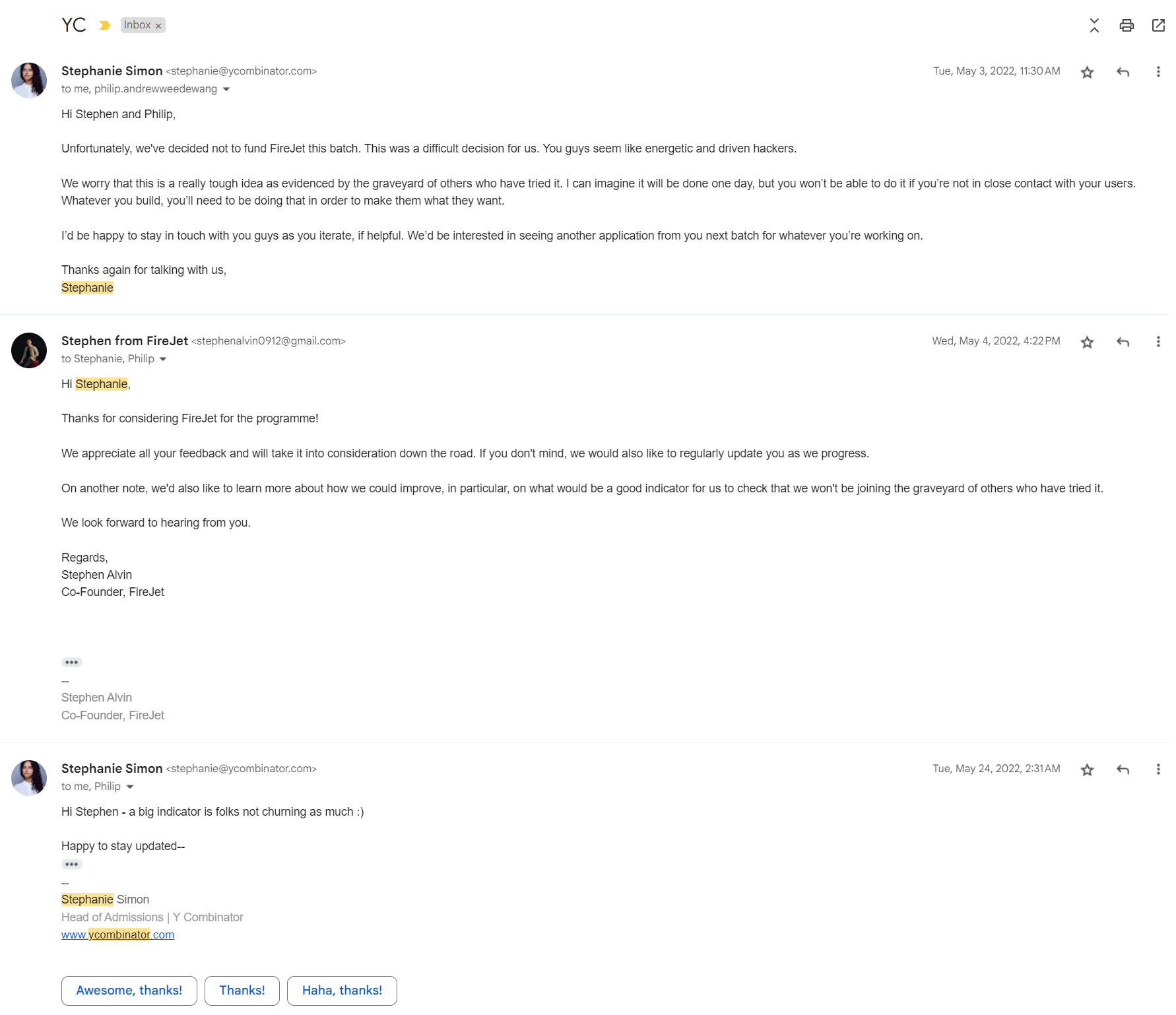
To summarise Stephnaie's points on why YC rejected us:
- Several unsuccessful competitors
- High churn rate
And their advice for us
- Keep talking to users
We spent quite a few days moping after being rejected, but in hindsight, I think that it doesn't really matter - What's more important is to keep the same speed of execution and talking to users in order to build something people want.
W23 - FireJet (Not top 10%)
Why we did not get the interview (Not even top 10%)
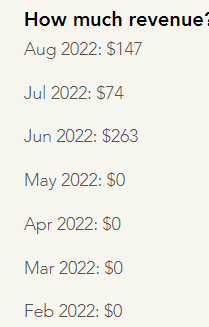
We had made very little progress in 7 months, and we hadn't solved the differentiation nor the churn problem from the previous YC interview.
It was okay that we had not received the traction that we were looking for, but the main problem was the major drop in speed of execution, which I boils down to 3 things:
- We did not have enough / did not have effective user interviews
- Our speed of execution dropped significantly
- We did not solve our churn issue
S23 - FireJet (Interviewed with YC)
Why we got the interview
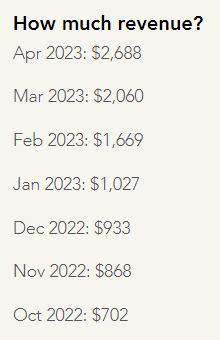
I think traction is king - we added a feature (componentization) which significantly improved the quality of outputted code from FireJet. As a result, our revenue jumped significantly and we were able to prove our ability to monetise.
The interview
One of the things that stumped us during this interview went like this:
YC Partners: Who are your users?
FireJet: Development houses in India, Vietnam, and the US
YC Partners: Who are your paying customers?
FireJet: Usually larger companies with more purchasing power
YC Partners: And what do larger companies want?
And the reason this stumped us was because we knew what our users wanted:
- Readable Code
- Pixel Perfection
- Responsive Designs
But we didn't know the specific answer for what the higher paying users wanted - we had not actively seperated our feedback by paying customers versus non-paying customers.
Why we got rejected after the interview
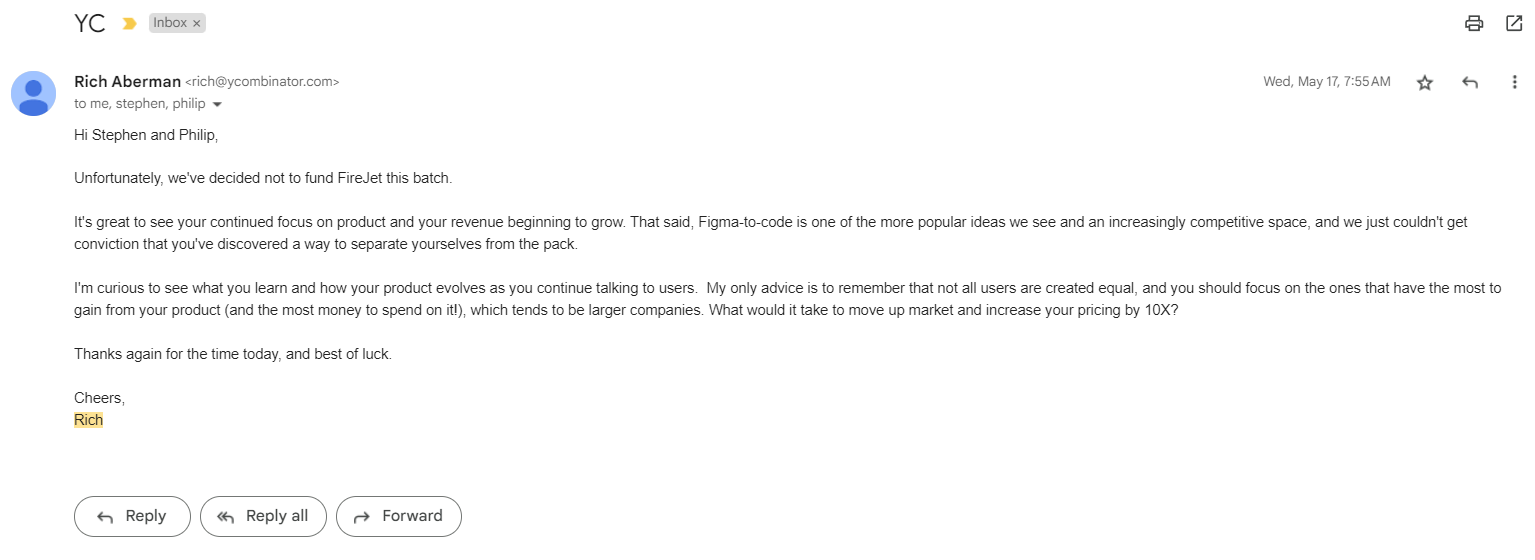
To summarise Richard's points on why they rejected us:
- Competitive space
- No clear differentiation
And his advice:
- Focus on the high revenue paying users and retaining them.
What we've done since then
Continuing our Current Idea - FireJet
Even internally we've had issues with retention - when building a Software-as-a-Service (SaaS) company the main driver of revenue growth is usually customers continuing subscribe to your service.
In our opinion, what customers really want is high quality code.
But what the Figma to Code companies want is high retention, and the thing about outputting high quality code is that the moment you get it, you no longer need the tool, hence leading to an unsubscription.
We are still focused on building what people want, which is a really accurate figma to code tool, whereas our competitors are more focused on adding additional features like adding functionalities and stuff straight from figma to increase retention.
However, we are continuing to struggle with retention, so we've been looking at other ideas as well.
Trying new Ideas - ContenX
Background
I've always wanted to share more publicly about our startup's journey (In order to drive more traffic to FireJet of course 🔥) but I've always been very lazy to do it because catering the content for reddit, linkedin and twitter was time consuming.
This is because what works on linkedin doesn't work on reddit, and eventually you'll end up on r/linkedinlunatics, whereas what works on reddit is not engaging enough for linkedin.
I've tried searching for ways to convert between the different formats, but I couldn't find a tool that could do that.
So, shameless self plug, we made contenx.io in order to turn one piece of content into ten (Get it? Content 10x?)
Also I'm a really avid squash player (see my rank here), but usually the optimal time to make the social media posts is when I'm at squash, which is why we've added the ability to schedule posts from contenx as well.
Why I think ContenX will help us get into YC
- Fast Execution - We built and launched the MVP in 1 week
- Early Customer Demand - We had 198 users in the first week, and with no advertising, we are still getting 25 users a day
- We're talking to users - After building, we've reached out to users to get feedback and implemented their feedback within the week
- Early signs of retention - Our retention statistics are much higher than FireJet, because people need to create new content all the time
Conclusions
I strongly believe getting into YC should not be the goal - the goal is to build a good startup, and whatever YC teaches lets you achieve that.
Here's what got us to the YC interviews
- Fast Execution
- Talking to users
And here's why we didn't get into YC
- Lack of differentiation
- High churn
So it really doesn't matter how much you fluff up your application - your time is much better spent building your startup, and if your startup is good, you'll probably be accepted into YC.
One last story...
One night I was staying over at Stephen's house to prepare for the interview. We had discussed our metrics and aligned our goals and ideas for FireJet, and we were feeling well prepared, so we went to sleep.
So we woke up, and it was showtime, so while I went to make coffee for the both of us, Stephen went to setup the zoom call.
Halfway while the water was boiling, I heard howling laughter coming from Stephen's room, so naturally I went over to ask him what was wrong.
He then showed me the calendar invite for the YC interview - apparently we were one day early, and woke up for nothing.
Long story short, Stephen is very bad at dates (Although I should have checked the dates as well)
